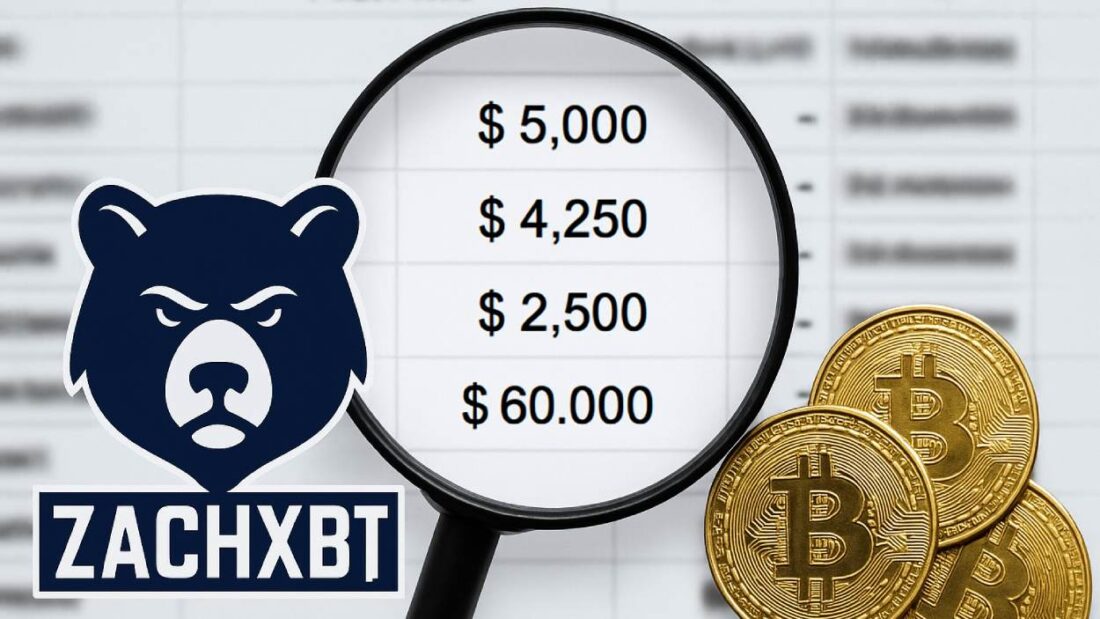A leaked spreadsheet shared by blockchain sleuth ZachXBT reveals over 160 crypto influencers took payments for promotions without disclosing them, raising serious questions about ethics and transparency in crypto marketing.
Key Takeaways
- ZachXBT released a spreadsheet showing over 200 crypto influencers were offered money for token promotions
- At least 160 accepted payments, but fewer than 5 disclosed the posts as paid advertisements
- Some influencers charged up to $60,000 for a single post, with payment receipts verified on Solana
- FTC disclosure rules were ignored, potentially exposing influencers and brands to legal risk
What Happened?
Crypto watchdog ZachXBT shared a detailed spreadsheet listing over 200 influencers approached for a promotional campaign. Of those, more than 160 accepted the deal, yet less than 5 clearly labeled their posts as ads. The document also includes Solana wallet addresses and on-chain payment receipts, with fees ranging from $50 to an eye-watering $60,000 per post.
NEW LEAK: Price sheet of 200+ crypto influencers and their wallet addresses from a project they were recently contacted by to promote.
— ZachXBT (@zachxbt) September 1, 2025
From 160+ accounts who accepted the deal I only saw <5 accounts actually disclose the promotional posts as an advertisement. pic.twitter.com/Kph9dUvDxB
This revelation has sparked widespread debate about ethics in crypto promotions and whether regulators like the FTC will step in to address the issue.
Inside the Influencer Spreadsheet Leak
ZachXBT’s spreadsheet leak has provided a rare behind-the-scenes look into how crypto influencers are paid to promote tokens. The data includes:
- Influencer usernames
- Post pricing tiers
- Solana wallet addresses
- Transaction hashes to verify payments
The spreadsheet categorizes influencers into five tiers based on how much they charge, with Tier 1 influencers commanding top dollar. Notably, the highest-priced post was a $60,000 payment to @Atitty_, verified with a direct transaction hash.
The truth
— Atitty (@Atitty_) September 1, 2025
I was hired to work on this platform and help market it, which is why I was payed $60k
I wasn’t paid $60k for one post, I was paid $60k to help push the platform
After they paid they then asked if I can post about the platform which I did (a post about how I was… pic.twitter.com/TMgMAUJDdv
Other high earners included:
- @sibeleth: $10,000 per post
- @MediaGiraffes: $5,000 per post
- @ApeMP5: $4,250 per video
- @DaoKwonDo, @herrocrypto, and others with multi-post packages ranging from $2,000 to $9,000
Despite these high payments, very few posts were marked with #ad or any similar disclosure.
FTC Rules and Crypto’s Transparency Problem
The Federal Trade Commission (FTC) mandates that influencers disclose any material connection to brands, especially when money is exchanged for promotional content. These rules are clear, but enforcement in the crypto space has been lax.
ZachXBT emphasized that his concern is not with influencers getting paid, but with the failure to be transparent. He stated, “There’s nothing wrong with paid promotion as long as you disclose to your followers and believe in the project.”
Undisclosed promotions have long been a concern in crypto, especially when combined with thinly traded tokens. Retail investors often jump into tokens because a familiar name promotes them, unaware that the post was paid for.
Crypto Twitter in Turmoil
This leak has caused a stir on Crypto Twitter, especially given ZachXBT’s track record for exposing crypto scams and misconduct. Known for digging into blockchain transactions since he got hacked in 2018, ZachXBT has built a reputation for rooting out bad actors.
Past investigations by ZachXBT include:
- The $5.5 million Rogue Society slow rug
- The $70 million Pixelmon controversy
- A $37 million laundering case involving Machi Big Brother
The influencer leak marks another chapter in his pursuit of accountability in crypto marketing.
The Scale of the Issue
The structured nature of the spreadsheet shows just how organized these campaigns have become. Deals often include bundle pricing, and each line item comes with direct links to payment confirmations, showing a systematic, industrialized market for paid influence in the crypto space.
Even though the dataset reflects a single campaign, ZachXBT pointed out it highlights how widespread non-disclosure still is. He described it as “a big problem in the industry after so many years.”
CoinLaw’s Takeaway
In my experience covering crypto, this is one of the clearest examples of how influencer culture can hurt retail investors. When people you trust are secretly being paid to hype tokens, it’s not just unethical, it’s dangerous. I found the on-chain receipts particularly damning. It’s one thing to suspect shady promotions, but seeing exact wallet addresses and transaction hashes makes it real.
This industry won’t mature until transparency becomes the standard. Until then, we need more watchdogs like ZachXBT to keep shining a light on the shadows.


































































